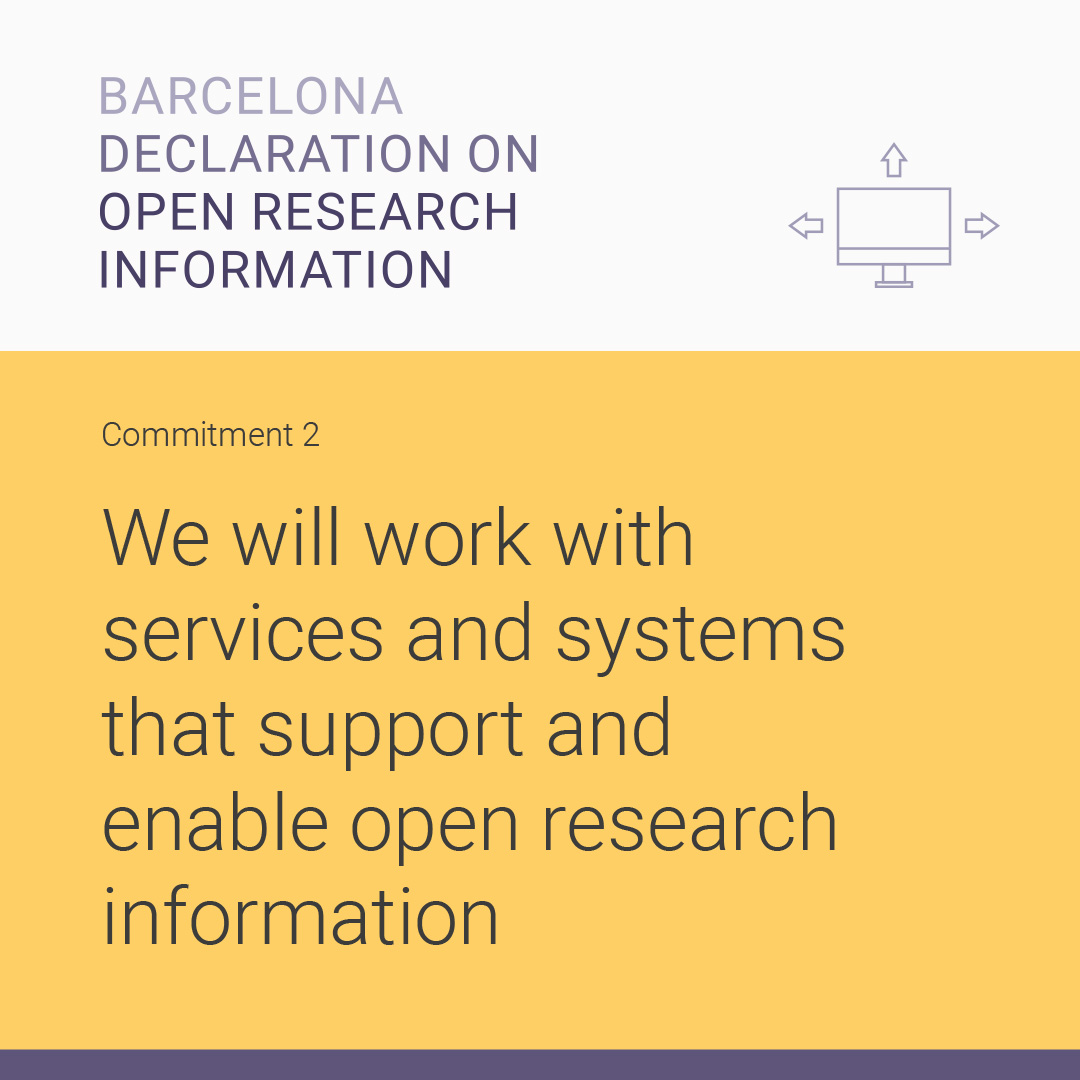April 16, 2025
 |  |
 |  |
One year ago, on April 16, 2024, the Barcelona Declaration on Open Research Information was launched. In this post, we want to highlight some of the developments during this past year, as the topic of open research information has gained attention and awareness, and a growing number of organizations are coming together to make the transition to open research information a reality.
On April 16, 2024, at the time of publication of the Barcelona Declaration, the Declaration had been signed by 44 organizations. Over the past year, an additional 64 organizations, including research performing organizations, funders and governments, have signed the Declaration. The latest signatories are Fundación “la Caixa” and CaixaResearch Institute from Spain. The number of organizations formally supporting the Declaration has increased from 14 one year ago to 50 today. The full list of signatories and supporters can be found here.
On September 23-24, 2024, the Paris Conference on Open Research Information was organized at Sorbonne University. The conference was attended by 130 participants, most of them representing signatories and supporters of the Barcelona Declaration. The conference participants co-created the Barcelona Declaration road map, outlining the key actions the signatories and supporters will work on in the coming years.
To coordinate signatory and supporter actions and to deliver on the promise of the current momentum, the Barcelona Declaration Office was established in early 2025 and an executive director (Bianca Kramer) was appointed. A community manager is currently being recruited to support the emerging community working on the open research information transition.
The implementation of the Barcelona Declaration road map has started. The implementation is coordinated through seven working groups consisting of representatives of signatories and supporters of the Declaration. The working groups will present their plans at next month’s Bologna Meeting on Open Research Information.
Signatories of the Barcelona Declaration have started to work on the implementation of the Declaration in their own organization. Organizations have for instance started to use open alternatives to closed data sources. Some organizations have also decided to discontinue subscriptions to closed data sources. Libraries have started to prioritize openness of publication metadata in negotiations with publishers. Funders have started to make metadata about their funding openly available, increasingly relying on shared metadata standards. In some countries, signatories have organized themselves in national networks to share their experiences in implementing the Barcelona Declaration commitments, organizing working meetings and training events.
National initiatives around open research information infrastructures are being developed in various countries. For instance, at the Nordic Bibliometric Infrastructure Spring Meeting earlier this month, national infrastructure initiatives in Denmark, Finland, Norway, and Sweden were presented. There are similar initiatives in other countries, such as Germany, Italy, and the Netherlands.
Over the past year, several other initiatives have also been launched in which open research information plays a critical role. Examples include the Open Science Monitoring Initiative (OSMI) and the Collaborative Metadata Enrichment Taskforce (COMET). Also, together with colleagues from a number of other reform initiatives, some work has been done on criteria for innovation-friendly bibliographic databases.
One year after its launch, the Barcelona Declaration has achieved significant progress. Of course, important challenges remain, particularly in making the working groups as productive as possible and in advancing the development and adoption of principles of open research information across more countries.
We will continue working in this direction, relying on a growing community of institutions and individuals committed to fulfilling the Barcelona Declaration’s commitments.